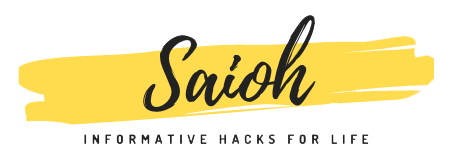A bright and healthy smile is not only aesthetically pleasing but also an indicator of good oral health. Taking care of your teeth and gums through proper oral hygiene practices is essential for maintaining a radiant smile and preventing dental issues. In this blog, we will explore effective oral hygiene tips that will help you achieve and maintain a healthy, confident smile.
Visit Your Dentist Regularly
Regular dental check-ups at cosmetic dentists caernarfon are crucial for maintaining optimal oral health. Schedule visits with your dentist every six months for professional cleanings and examinations. These appointments allow your professional cosmetic dentist to detect any potential issues early on and provide necessary treatments to prevent further complications.
Brushing Techniques
Proper brushing technique is the foundation of good oral hygiene. Use a soft-bristle toothbrush and fluoride toothpaste. Hold your toothbrush at a 45-degree angle to your gums and brush gently in a circular motion. Ensure that you brush all surfaces of your teeth, including the front, back, and chewing surfaces. Aim for at least two minutes of brushing twice a day, preferably in the morning and before bed.
Flossing for Interdental Cleaning
Brushing alone cannot reach the tight spaces between your teeth. That’s where flossing comes in. Take about 18 inches of dental floss and wrap it around your fingers, gently sliding it between each tooth in a back-and-forth motion. Be sure to curve the floss around the base of each tooth and go beneath the gum line. Flossing should be done at least once a day to remove plaque and food particles from areas that brushing cannot reach.

Don’t Forget Your Tongue
The tongue harbours bacteria that can contribute to bad breath and oral health issues. Use a tongue scraper or the bristles of your toothbrush to gently clean your tongue after brushing. Start at the back and move forward, scraping or brushing away any bacteria or debris. This simple step can help improve breath freshness and enhance overall oral hygiene.
Choose Mouthwash Wisely
Mouthwash can be a valuable addition to your oral hygiene routine, but it should not be a substitute for brushing and flossing. Opt for an alcohol-free mouthwash that contains fluoride to help strengthen teeth and fight bacteria. Use it after brushing and flossing to rinse your mouth thoroughly and freshen your breath.
Limit Sugary and Acidic Foods
Frequent consumption of sugary and acidic foods can contribute to tooth decay and enamel erosion. Limit your intake of sugary snacks, carbonated beverages, and acidic fruits. When consuming these foods, try to brush your teeth or rinse your mouth with water afterward to minimise their impact on your dental health.

Stay Hydrated
Drinking plenty of water throughout the day helps promote saliva production, which is essential for maintaining a healthy oral environment. Saliva helps wash away food particles, neutralises acids, and remineralizes teeth. Make it a habit to stay hydrated by drinking water regularly.
Consider Additional Dental Tools
Incorporating additional dental tools into your oral hygiene routine can enhance your cleaning efforts. Electric toothbrushes, water flossers, and interdental brushes can provide more effective cleaning and reach areas that are challenging to access with traditional brushing and flossing methods. Consult with your dentist to determine which tools are best suited for your specific needs.
By following these oral hygiene tips, you can maintain a healthy smile and promote overall dental wellness. Consistent and proper brushing, flossing, tongue cleaning, and regular dental check-ups will help prevent oral health issues and contribute to your overall well-being.




